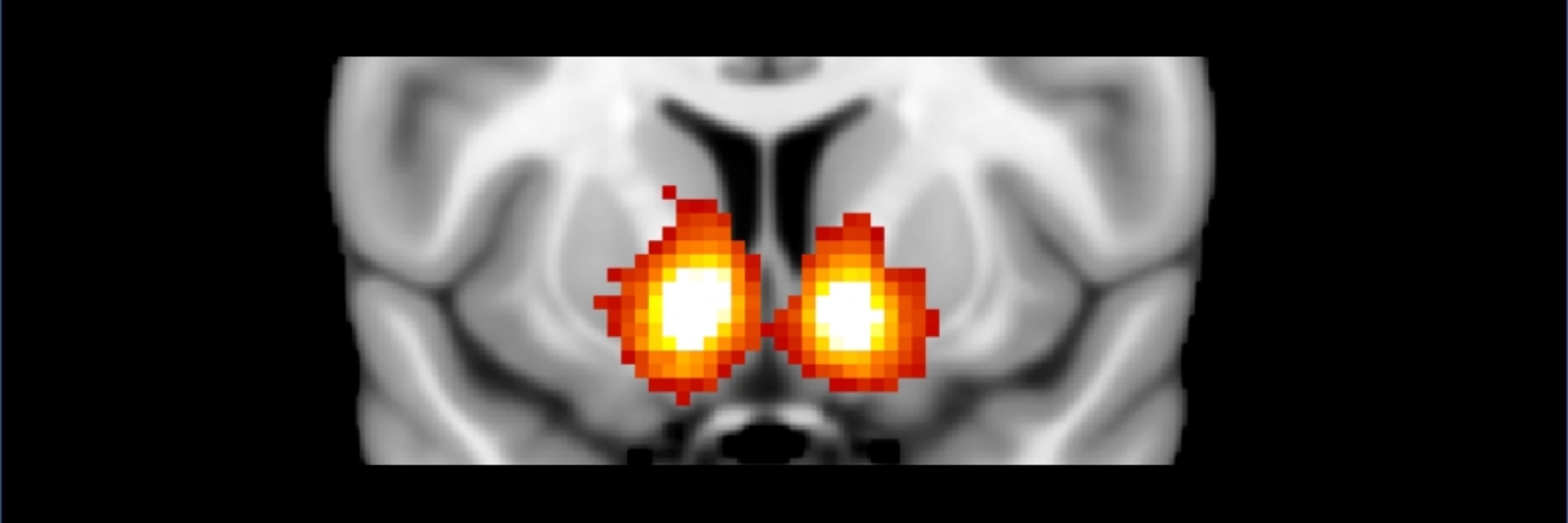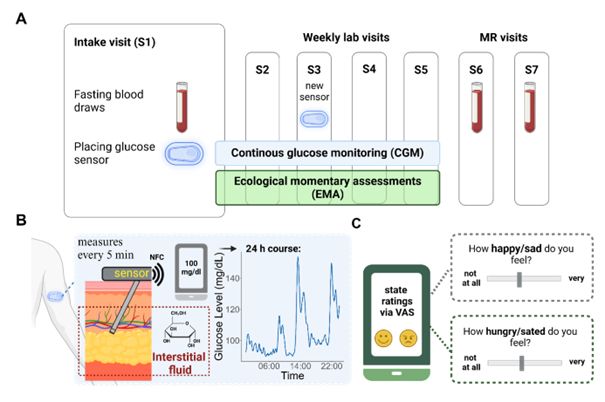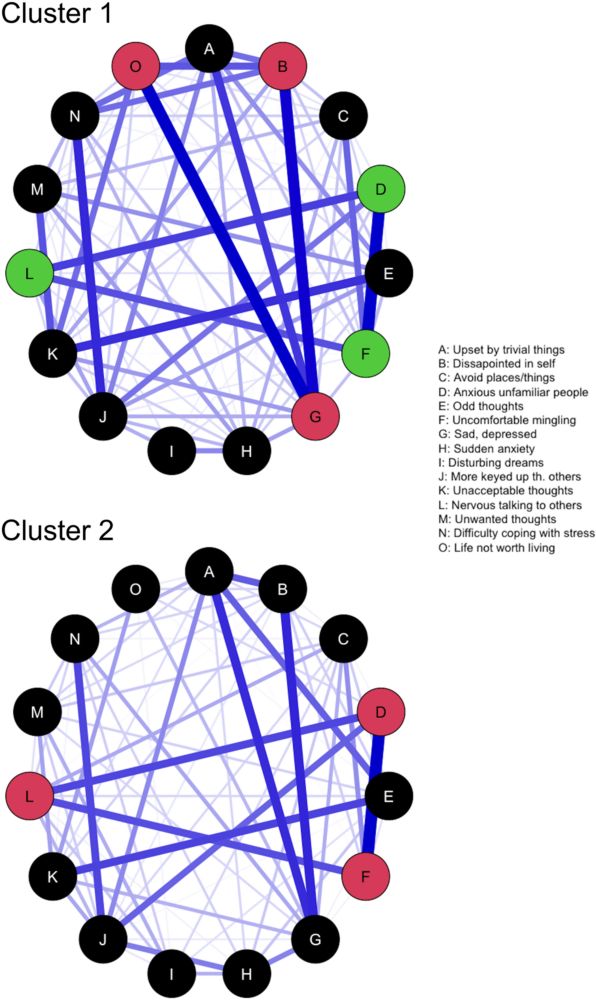
aka @cornu_copiae

Work w/ @kristinkaduk.bsky.social @akuehnel.bsky.social @derntllab.bsky.social
www.biorxiv.org/content/10.1...

doi.org/10.1371/jour...
doi.org/10.1371/jour...

When noise and volatility are independently manipulated people behave differently depending on their anxious traits.

When noise and volatility are independently manipulated people behave differently depending on their anxious traits.
It is the first first author paper from my student @renilmathew.bsky.social 👏🏽👏🏽👏🏽 …1/N

It is the first first author paper from my student @renilmathew.bsky.social 👏🏽👏🏽👏🏽 …1/N
www.nature.com/articles/s41...

www.nature.com/articles/s41...

In our latest paper, we take a data-driven approach to help answer this.
doi.org/10.1111/psyp...
1/

In our latest paper, we take a data-driven approach to help answer this.
doi.org/10.1111/psyp...
1/
@sneuroble.bsky.social @psychonetrics.bsky.social
@alexkfischbach.bsky.social
@nichols.bsky.social
@dscheinost.bsky.social & MINDS Lab
doi.org/10.52294/001...
@halleeshearer.bsky.social @sneuroble.bsky.social @ohbmossig.bsky.social
#OpenDatasets #SpecialIssue

@sneuroble.bsky.social @psychonetrics.bsky.social
@alexkfischbach.bsky.social
@nichols.bsky.social
@dscheinost.bsky.social & MINDS Lab


#blueprint 1/7

#blueprint 1/7
“Sensory processing reformats odor coding around valence and dynamics”
www.biorxiv.org/content/10.1...
We ask: how is a sensory code transformed across multiple stages of processing to inform behavior?

“Sensory processing reformats odor coding around valence and dynamics”
www.biorxiv.org/content/10.1...
We ask: how is a sensory code transformed across multiple stages of processing to inform behavior?
REVIEW | Obesity-induced inflammation: connecting the periphery to the brain
O Le Thuc & C García-Cáceres

REVIEW | Obesity-induced inflammation: connecting the periphery to the brain
O Le Thuc & C García-Cáceres

@nbkroemer.bsky.social @glassybrain.bsky.social
I hope that this paper and its guidance on the taVNS MRI set-up will help those planning concurrent #fMRI and #vagusnervstimulation
Checkout our new preprint
osf.io/preprints/ps...
Endless gratitude to @nbkroemer.bsky.social & @glassybrain.bsky.social
Led by @glassybrain.bsky.social & @cogneuroludwig.bsky.social.
osf.io/preprints/ps...
@nbkroemer.bsky.social @glassybrain.bsky.social
url.au.m.mimecastprotect.com/s/9P5mCROAEn...
#DecisionScience #DecisionMaking #Psychology #Psychiatry #Neuroscience #Philosophy

url.au.m.mimecastprotect.com/s/9P5mCROAEn...
#DecisionScience #DecisionMaking #Psychology #Psychiatry #Neuroscience #Philosophy
A new study by the DZD-partner DIfE and Charité, led by Prof. Olga Ramich, shows it mainly shifts the body’s internal clocks. ⬇️⬇️⬇️⬇️⬇️
Contrary to common assumptions, a new study from the German Institute of Human Nutrition Potsdam-Rehbruecke (DIfE) and Charit?...
weiterlesen

A new study by the DZD-partner DIfE and Charité, led by Prof. Olga Ramich, shows it mainly shifts the body’s internal clocks. ⬇️⬇️⬇️⬇️⬇️
the experience of mental effort! Now out in @cerebralcortex.bsky.social Led by Gaia Corlazzoli.
Paper: desenderlab.com/wp-content/u.... Thread ↓↓↓

the experience of mental effort! Now out in @cerebralcortex.bsky.social Led by Gaia Corlazzoli.
Paper: desenderlab.com/wp-content/u.... Thread ↓↓↓
We used invasive brain mapping to identify personalized neuromodulation targets for treatment-refractory OCD.
Read it here 👉 www.nature.com/articles/s41...
#OCD #DBS #Neuroscience #Research

We used invasive brain mapping to identify personalized neuromodulation targets for treatment-refractory OCD.
Read it here 👉 www.nature.com/articles/s41...
#OCD #DBS #Neuroscience #Research
elifesciences.org/reviewed-pre...
Congrats to @hashimsat.bsky.social and our amazing collaborators on this great team effort.
Special shout-out to @haukeren.bsky.social, who made this possible through his generous support 🙌
elifesciences.org/reviewed-pre...
Congrats to @hashimsat.bsky.social and our amazing collaborators on this great team effort.
Special shout-out to @haukeren.bsky.social, who made this possible through his generous support 🙌
Case: doi.org/10.1016/j.br...
Letters: www.elsa-fouragnan.com/blog | web.stanford.edu/~kimbutts/Le...

Case: doi.org/10.1016/j.br...
Letters: www.elsa-fouragnan.com/blog | web.stanford.edu/~kimbutts/Le...
- We tracked boredom-related & diffculty-related effort dynamics & assessed how they covary with changes in electrodermal activity
Led by Vanessa Radtke & w/ @corimartarelli.bsky.social
www.sciencedirect.com/science/arti...

- We tracked boredom-related & diffculty-related effort dynamics & assessed how they covary with changes in electrodermal activity
Led by Vanessa Radtke & w/ @corimartarelli.bsky.social
www.sciencedirect.com/science/arti...
Changes in hypothalamic subunits volume and their association with metabolic parameters and gastrointestinal appetite-regulating hormones following bariatric surgery
doi.org/10.1162/IMAG...

Changes in hypothalamic subunits volume and their association with metabolic parameters and gastrointestinal appetite-regulating hormones following bariatric surgery
doi.org/10.1162/IMAG...
Let's connect and bring gut-brain research and clinical neurogastroenterology to the next level! 🌐
go.bsky.app/3Z82PbH
Let's connect and bring gut-brain research and clinical neurogastroenterology to the next level! 🌐
go.bsky.app/3Z82PbH

